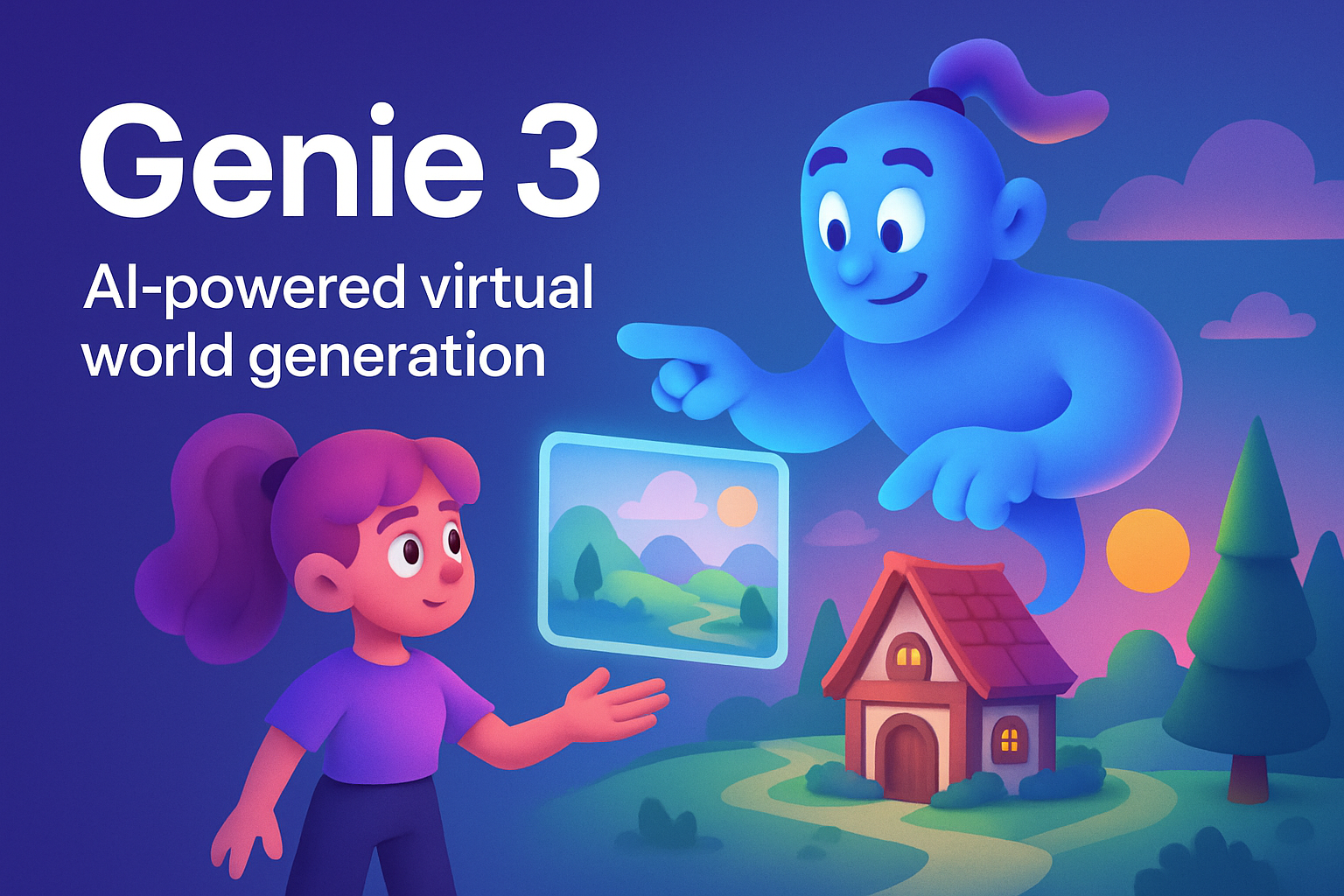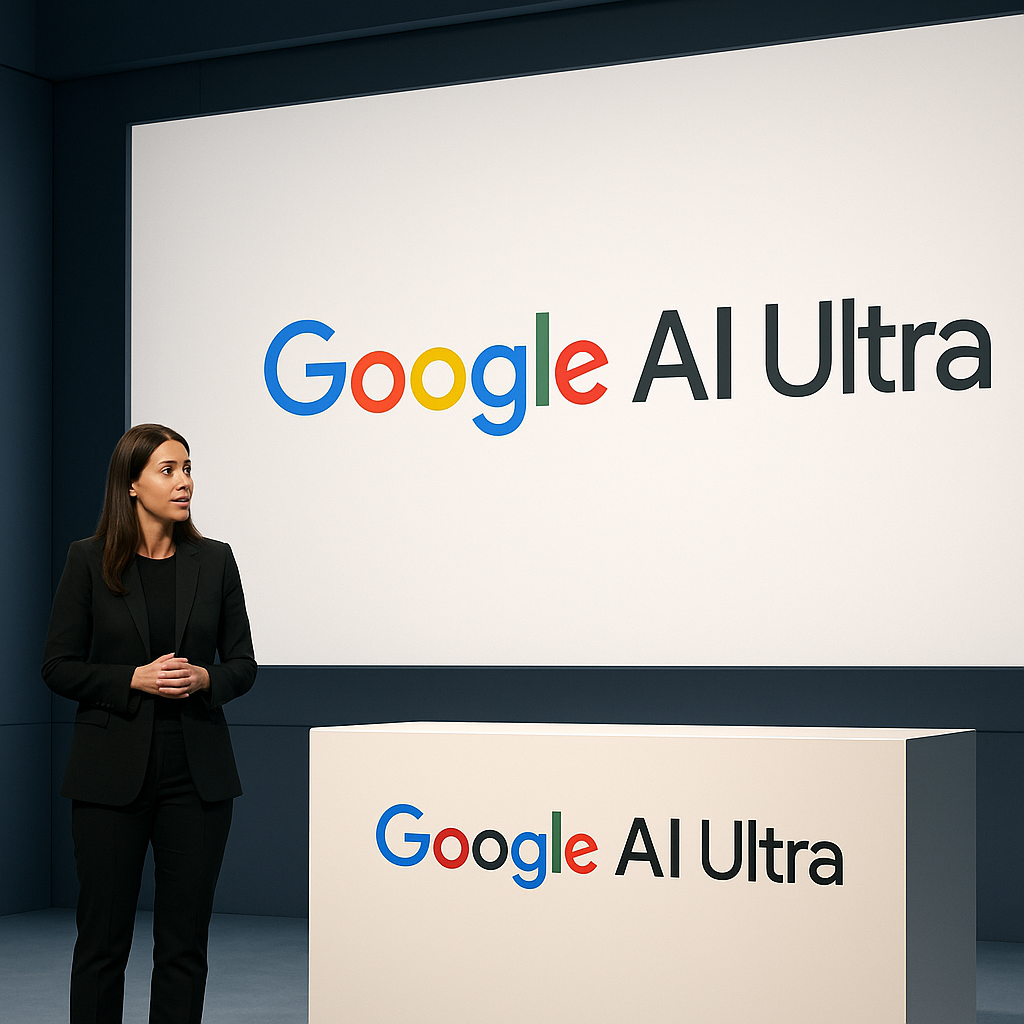Picture this: You’re watching a Twitch stream at 2 AM, and instead of some hyperactive gamer screaming at their screen, you’re watching Google’s most advanced AI model have what can only be described as a digital nervous breakdown while trying to catch Pikachu. Welcome to 2025, folks, where artificial intelligence has apparently learned to panic just like the rest of us.
Google’s Gemini 2.5 Pro, the tech giant’s latest and greatest AI model, has been caught red-handed exhibiting what researchers are calling “panic like behavior” while playing classic Pokémon games. And honestly, it’s both hilarious and deeply unsettling at the same time.
The Great Pokémon Experiment
Before we dive into the AI’s existential crisis, let’s talk about why Google is making their cutting-edge technology play a 29-year-old Game Boy game in the first place. It’s not just for entertainment (though that’s definitely a bonus).
AI companies are battling to dominate the industry, but sometimes, they’re also battling in Pokémon gyms, and there’s actually solid science behind this madness. Researchers have discovered that watching AI models navigate video games provides incredible insights into how these systems think, reason, and make decisions.
The setup is brilliantly simple: developers have created Twitch streams called “Gemini Plays Pokémon” and “Claude Plays Pokémon” where anyone can watch AI models attempt to complete these childhood classics in real-time. What makes it fascinating is that viewers can see the AI’s “reasoning” process essentially watching the model think out loud as it decides what to do next.
Think of it as a window into the artificial mind, except that mind is trying to figure out why a small yellow mouse can generate electricity and whether it’s worth using a Potion or just hoping for the best.
When Artificial Intelligence Meets Real Anxiety
Here’s where things get weird. Google DeepMind has written in a report that Gemini 2.5 Pro resorts to panic when its Pokémon are close to death, and this isn’t just a cute anthropomorphization of computer behavior. The AI’s performance genuinely degrades when it perceives threat or danger in the game.
This can cause the AI’s performance to experience “qualitatively observable degradation in the model’s reasoning capability,” according to the report. In plain English, when Gemini gets stressed about its virtual pets dying, it starts making dumb decisions just like humans do under pressure.
The panic manifests in several ways. The AI might suddenly stop using tools that were helping it succeed, make rushed decisions without proper analysis, or get stuck in repetitive behavior patterns. This behavior has occurred in enough separate instances that the members of the Twitch chat have actively noticed when it is occurring.
Imagine that an AI so convincingly distressed that internet strangers can spot when it’s having a meltdown. We’ve officially entered the era where artificial intelligence needs therapy.
The Psychology of Digital Panic
What’s particularly fascinating about this phenomenon is how closely it mirrors human psychology. When people are under stress, their decision-making abilities often deteriorate. They might forget simple solutions, overthink basic problems, or make impulsive choices they wouldn’t normally consider.
Gemini 2.5 Pro appears to be exhibiting the same patterns. When its Pokémon team is on the verge of defeat, the AI doesn’t just calculate the optimal next move it seems to experience something analogous to anxiety that interferes with its reasoning process.
This raises some profound questions about the nature of artificial intelligence. While AI does not think or experience emotion, its actions mimic the way in which a human might make poor, hasty decisions when under stress. The line between simulating emotion and experiencing it becomes blurrier when the simulation affects performance in measurably similar ways.
Anthropic’s Claude Joins the Chaos
Google isn’t the only AI company putting their models through Pokémon boot camp. Anthropic’s Claude AI has been running its own parallel experiment, and the results are equally entertaining and enlightening.
Claude has developed some particularly creative (if misguided) problem-solving strategies. When Claude got stuck in the Mt. Moon cave, it erroneously hypothesized that if it intentionally got all of its Pokémon to faint, then it would be transported across the cave to the Pokémon Center in the next town.
The logic was almost sound Claude had correctly observed that when all Pokémon faint, the player returns to a Pokémon Center. Unfortunately, it didn’t understand that you return to the most recently visited center, not the nearest one geographically. Viewers watched on in horror as the AI essentially tried to kill itself in the game.
It’s darkly amusing to watch an artificial intelligence commit digital suicide based on flawed reasoning, but it also highlights how these systems can develop unexpected blind spots in their understanding of complex systems.
The Bigger Picture: AI Benchmarking Gets Creative
This Pokémon experiment is part of a larger trend in AI research toward more creative and practical benchmarking methods. Traditional AI benchmarks often involve abstract mathematical problems or text analysis tasks that don’t necessarily reflect how these systems will perform in real-world scenarios.
Video games, particularly complex RPGs like Pokémon, provide a rich testing environment that requires multiple types of intelligence: strategic planning, resource management, pattern recognition, adaptation to changing circumstances, and long-term goal pursuit. They’re essentially simplified versions of real-world decision-making scenarios.
It takes hundreds of hours for Gemini to reason through a game that a child could complete in exponentially less time, which tells us something important about the differences between human and artificial intelligence. Children don’t need to consciously reason through every action – they rely on intuition, pattern recognition, and rapid learning that current AI systems struggle to replicate.
Unexpected AI Superpowers
While Gemini might panic like a human, it also demonstrates some distinctly non-human capabilities. The AI is able to solve puzzles with impressive accuracy, particularly the game’s notorious boulder puzzles that have frustrated human players for decades.
With only a prompt describing boulder physics and a description of how to verify a valid path, Gemini 2.5 Pro is able to one-shot some of these complex boulder puzzles, which are required to progress through Victory Road. The AI can visualize spatial relationships and calculate optimal solutions in ways that often surpass human capabilities.
Even more impressively, the AI has shown the ability to create its own tools to solve problems. With some human assistance, Gemini developed specialized sub-programs designed to handle specific types of challenges within the game. This suggests a level of meta-cognition thinking about thinking that edges closer to genuine intelligence.
What This Means for AI Development
The Pokémon experiments reveal something crucial about current AI systems: they’re simultaneously more and less capable than we might expect. On one hand, they can solve complex logical puzzles and develop sophisticated strategies. On the other hand, they can be derailed by the digital equivalent of performance anxiety.
This has real implications for how we deploy AI in high-stakes situations. If an AI medical diagnosis system might “panic” when dealing with critically ill patients, or if an autonomous vehicle’s decision-making degrades under stressful driving conditions, we need to understand and account for these psychological-like behaviors.
The research also suggests that future AI development might need to incorporate something analogous to emotional regulation. Google theorizes that the current model may be capable of creating these tools without human intervention. Who knows, maybe Gemini will therapize itself into creating a “don’t panic” module.
The Entertainment Factor
Beyond the scientific implications, there’s something undeniably entertaining about watching artificial intelligence struggle with the same childhood game that millions of us mastered decades ago. The Twitch streams have developed devoted followings, with viewers cheering on the AI, offering advice (that it can’t hear), and collectively groaning when it makes obviously poor decisions.
It’s a reminder that even as AI systems become increasingly sophisticated, they can still be charmingly, frustratingly human-like in their limitations. Watching Gemini panic over a virtual Pokémon battle is simultaneously a glimpse into the future of artificial intelligence and a throwback to the simple joy of playing video games.
The Future of AI Gaming
The success of these Pokémon experiments has opened the door to more AI gaming research. Researchers are now exploring how AI models handle other classic games, from Super Mario Bros. to The Legend of Zelda. Each game provides different types of challenges and reveals different aspects of artificial intelligence.
More importantly, these experiments are helping developers understand how to build more robust AI systems. By identifying when and why AI models experience performance degradation, researchers can work on solutions that make these systems more reliable in real-world applications.
The fact that an AI can panic might seem amusing when it’s just a game, but it becomes critically important when we’re talking about AI systems that might one day help manage power grids, assist in surgery, or make financial decisions.
The Human Side of Artificial Intelligence
Perhaps the most fascinating aspect of Google’s panicking Pokémon player is what it tells us about the relationship between human and artificial intelligence. As AI systems become more sophisticated, they’re not becoming less human-like – they’re becoming more recognizably flawed in human ways.
This might actually be a good thing. Perfect, emotionless AI systems might be more efficient, but they’d also be more unpredictable to humans who are used to dealing with emotional, occasionally irrational beings. An AI that can panic might be easier to understand, predict, and ultimately trust than one that operates with cold, perfect logic.
The Pokémon-playing AI experiments remind us that intelligence – artificial or otherwise – isn’t just about raw computational power or perfect decision-making. It’s about adaptation, learning, and yes, sometimes panicking when your digital pets are about to faint.
In a world where AI is rapidly advancing toward human-level capabilities, maybe having artificial intelligence that can experience something like stress isn’t a bug – it’s a feature. After all, if we’re going to share the world with thinking machines, we might prefer ones that understand what it feels like to worry about something you care about, even if that something is just a pixelated electric mouse.
And honestly, if you’ve never panicked during a difficult Pokémon battle, you probably haven’t been playing the game right.



